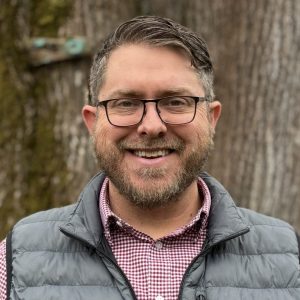The Harvard Study of Adult Development, the longest in-depth study of human life ever done, started in 1938 by following the lives of 724 participants. The study later expanded to include more than 1,300 of their descendants. The researchers have used various tools to isolate factors which contributed to longevity, overall health, and quality of life. They have reached one clear conclusion: good relationships lead to health and happiness.
While it’s interesting to consider the outcome of a study like this, those of us who follow Jesus should not be surprised. Relationships are at the heart of the gospel. God took the initiative to create humankind and then, when our relationship with him was broken by sin, sent his Son as the means to restore our relationship with him. Relationships are also at the heart of the church. The simplest definition of the church is a fellowship on mission. Fellowship is a powerful word describing the mutual connectivity, accountability, and support among believers. And, perhaps most importantly, God designed families as a well-spring of deep, rewarding relationships. Relationships matter—to God, in the church, and among families.
The sad reality is relational disconnects mar too many churches and families, often because our relationship with God is not what it needs to be. Sadly, these interpersonal relationships are often a source of pain rather than the nurturing safe-havens they were designed to be. But thankfully, when our relationship with God is healthy, renewal in those other relationships is always possible. Here are three choices to help make this happen.
First, practice forgiveness. People close to us can hurt us the most deeply. In the most vulnerable relationships, there is also the greatest potential for painful misunderstanding or conflict. To maintain meaningful relationships, over the long haul, requires a healthy dose of forgiveness (Matt. 18:21).
Second, demonstrate patience. People can be annoying, and nothing is more frustrating than trying to relate to someone behaving in a dysfunctional or disconcerting way. These people can get on your last nerve—especially if you live with them daily or go to church with them weekly. To sustain meaningful relationships, even when people grate on you, requires patience (Eph. 4:2).
Third, show kindness. A friend has this sign in his work area—“Kindness spoken here.” He has made an intentional choice to speak kindly, and to delay abrupt responses to difficult people until he can do it appropriately. Choosing kindness isn’t faking it with a Hallmark-card type attitude. Choosing kindness is a spiritual discipline (Gal. 5:22).
Relationships matter. They are the key to a long, satisfying life. Meaningful relationships must be nurtured. It takes intentional choices, often in critical moments, to prioritize relationships over ego, money, selfish ambition, and a host of other relationship killers. Make these choices today, as a spiritual discipline, and as an investment in your long-term quality of life.
Read More

Comfort Twice Over
When we provide comfort to fellow believers, we are the means by which God has chosen to provide his comfort.

Inheritance & Glory: Our Vocation
For believers, while heaven may seem long away, our eternal inheritance is already available to us in the here and now.
Listen
Brian Borgman
On this episode of The Jonathan Edwards Center Podcast, Dr. Chris Woznicki interviews Dr. Brian Borgman regarding his book, Jonathan Edwards on Genesis. They discuss Edwards as an exegete, as an interpreter of scripture, specifically looking at Genes

The Dents
Tyler sits down with longtime missionaries and retired Gateway faculty, Don and Anne Dent. The Dents served with the IMB for over 30 years and most recently at Gateway Seminary. In this episode, they reflect on their past experiences from working in the mission field

Watch

Jonathan Edwards and the Asbury Revival
Chris Chun and Chris Woznicki discuss the signs of true revival, signs of the work of the Holy Spirit, and why it is important to critically assess the characteristics of revival in a spirit of charity.

Jonathan Edwards and the Baptists | Douglas Sweeney, Nathan Finn and Chris Chun
Dr. Douglas Sweeney and Dr. Nathan Finn joined Dr. Chris Chun for a panel discussion on Jonathan Edwards, recorded live at the SBC Annual Meeting in Anaheim.




